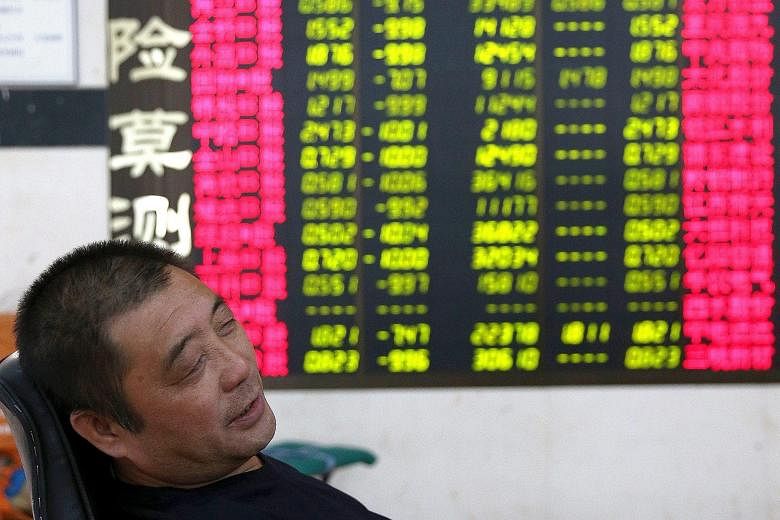China's battered stock markets continued their downward spiral yesterday despite recent government efforts to calm sentiment and curb the savage sell-off.
The Shanghai Composite lost another 1.29 per cent, while its Shenzhen counterpart dived 5.34 per cent. Both indexes have lost more than 30 per cent since the crash started on June 12.
The sell-off is China's worst since 1992 and has so far wiped around US$3 trillion (S$4 trillion) in share value off the market. The heavy correction came despite strong official policy support, including announcements two weeks ago to cut interest rates and banks' reserve requirement to boost market liquidity.
New listings have also been temporarily suspended to prevent fund diversions, while brokerage firms responded to the government's call last weekend by pledging to invest some US$19 billion in stocks to help bolster the market.
Some analysts are not convinced that the measures will turn the tide, and the bearish markets may hurt more than investors' wallets.

"The market is still very volatile and I don't think for a second that these measures by the government will set the Chinese stock market on a sure rally. Risk management is key," said Phillip Futures analyst Howie Lee in a note yesterday.
In a separate report yesterday, Schroders emerging markets economist Craig Botham said: "We have seen large one-day falls in the market when the regulator has moved to reduce volatility, which pointed to the fragility of the bubble."
The market crash may also complicate matters for Beijing in its project to rebalance the economy and sustain growth, he added.
But Standard Chartered Wealth Management is still overweight on Chinese stocks, citing a positive long-term outlook. Ms Vivian Heng, the unit's director in its investment advisory team, told The Straits Times: "We continue to be positive on the market over a six- to 12-month time frame, even though there'll be higher volatility in the short term. It will take some time for the market to find its support level, but we believe there are still a lot of policy levers that the government can pull as it looks to reduce the corporate sector's debt level by developing a strong capital market to provide equity financing."
But Standard Chartered prefers H-shares - Chinese companies listed in Hong Kong - which currently offer better value as they are 37 per cent less expensive on average than their mainland counterparts.


